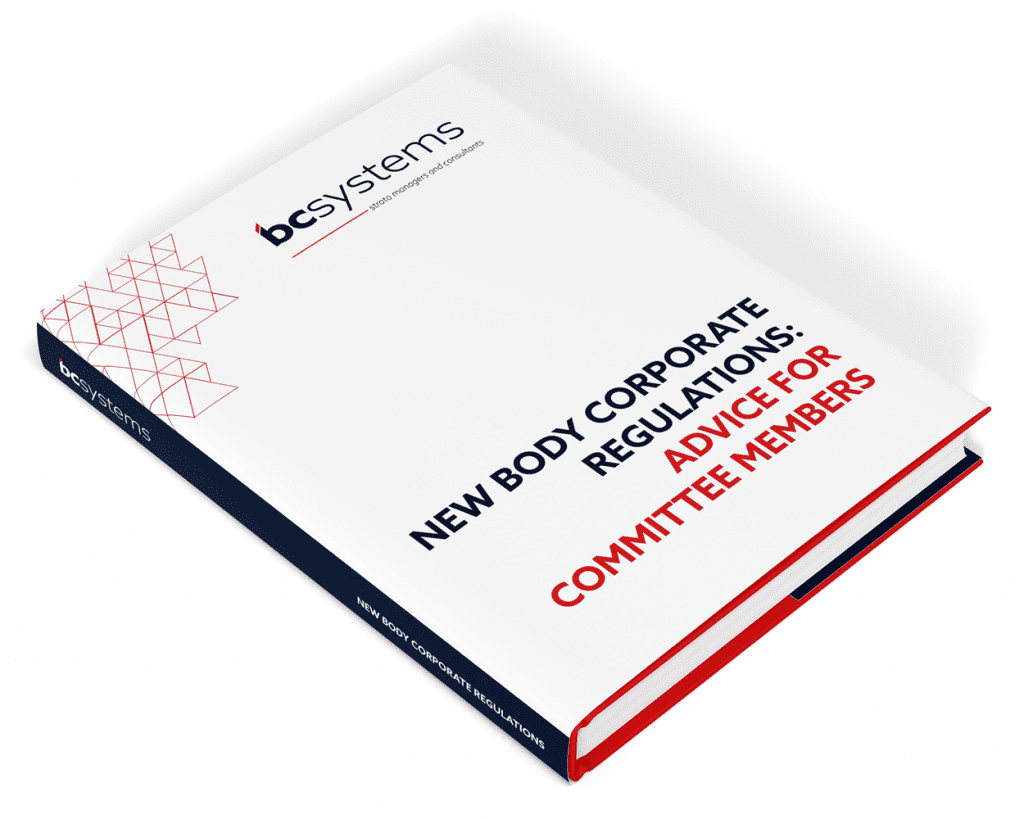
Understanding Body Corporate Disclosure Statements
In Queensland, the law mandates that sellers of lots in community title schemes provide a disclosure statement to prospective buyers before entering into a contract.

Home » Committee advice » New Body Corporate Regulations: Advice for Committee Members
We recently issued an article to all owners summarising changes to the body corporate legislation (regulations). This is a separate set of information, with some additional detail specifically for committee members.
The new legislation comes into effect from 1 March 2021. This new legislation applies to all body corporate communities in Queensland, with only a few exceptions.
We have carefully reviewed all the changes, and we have identified some that will affect your committee in a meaningful way. We have summarised those with our advice below.
Previously owners could submit AGM motions, but could not submit motions to the committee. The committee had the ability to decide what issues it would and would not deal with.
Now owners now have a power to submit motions to the committee, and the committee must consider the motion within 6 weeks. The committee can give a YES or NO answer to the owner’s motion, and the owner’s motion must be in a proper format.
There is a protection against owners using this power to cause a nuisance – owners cannot submit a motion about the same issue in a 12-month period, and cannot submit 6 or more motions in a 12-month period.
To improve the quality of motion submissions and reduce committee time, we have a website form that gives owners guidance on how to submit motions.
Similar to the motion timeframe, any application made to the committee for approval under a by-law must be considered within 6 weeks. This commonly applies to pets, air-conditioning, renovations, changes to lot appearance etc.
The committee can extend the period if reasonable (for example if the next meeting was 8 weeks away it would be reasonable to extend the 6-week deadline to that meeting).
To reduce owner applications, we recommend committees consider issuing blanket-approval with strict conditions, so owners can follow existing committee-approved policies.
If the committee has a ‘vote outside committee meeting’ process where votes are cast in writing (e.g. by email), that process cannot last longer than 21 days.
If a motion is issued to the committee and it does not achieve a majority outcome after 21 days, it is deemed to have failed.
Previously committee members must have levies paid up to date to join the committee, but were then able to go into levy arrears and still vote throughout the year.
Under the new regulation committee members must be financial and paid in full to join the committee, and also to vote on any committee motions or committee meetings throughout the year. If a committee member owes a levy or other debt at the time of a committee vote, the member cannot vote.
In addition to committee members needing to stay up to date with levy payments at all times to be eligible to vote, the person who nominated that committee member at the AGM must also be financial.
Our advice to committees to manage this complication is to self-nominate for committee where possible. Lot owners can nominate themselves to be committee members. That way in most cases the committee member and the nominator are the same person, and as the committee member you will know whether your own levies are up to date.
If you are not eligible to nominate yourself to the committee (e.g. if you are a family member of an owner, or a company nominee etc), then you will need to ensure that the person who nominated you for the committee continues their levy payments on-time.
The law now confirms existing practice that committees can attend and vote at committee meetings electronically (including by audio and video call).
BCsystems offers free use of Zoom for committee meetings. Committee members can join Zoom meetings either on your PC, Zoom phone app, or by dialling a landline number. Let your strata manager know if you would like to use Zoom for your committee meetings.
Previously a grey area, it is now confirmed that the committee is authorised to renew the body corporate’s insurance, even if the insurance policy cost is above the committee’s spending limit. This is important to ensure insurance policies remain current at all times.
Our insurance motion at each AGM already authorises the committee to make this decision, so this is a further protection to the committee on this topic.
There are plenty of other minor procedural changes in the new regulations – our team has spent months working through these to ensure our documents and procedures take each change into account.
The benefit of working with an experienced industry-leader BCsystems is that we have these legal changes covered. We will let your committee know of any other changes that may affect your individual body corporate community as we progress through the year.

In Queensland, the law mandates that sellers of lots in community title schemes provide a disclosure statement to prospective buyers before entering into a contract.

Understanding how your individual levy amount is calculated can help you appreciate where your money goes and ensure transparency in the management of your community. Here’s a breakdown of the aspects involved in calculating levy amounts.